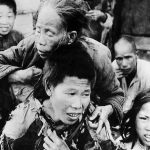In 1790, George Washington wrote that “the establishment of our new Government seemed to be the last great experiment, for promoting human happiness, by reasonable compact, in civil Society.” Today, Yascha Mounk has reassessed Washington’s words. He proposes in his new book The Great Experiment that many Western nations are now conducting their own experiments. Never have so many nations tried to establish such diverse democracies, regimes that grant citizens of so many colors and creeds the same freedoms, opportunities and responsibilities.
Mounk, a professor at Johns Hopkins University and the founder of the Substack publication Persuasion, is both hopeful and pragmatic about the experiment’s outcomes. He argues that greater diversity means contradiction in identities and beliefs — conflict that can be exacerbated by majority rule. He confronts these and other inherent problems, identifies the traits of an ideal diverse democracy and gives reasons to hope for — and policy prescriptions to foster — the experiment’s success.
Mounk is a vocal defender of the philosophical assumptions that undergird liberal democracies, which have been under attack from both left and right. Although he is undeniably a man of the left, he criticizes the tactics of both sides. Progressives, on the one hand, challenge diverse democracies by focusing too much on the ethnic and racial identities of citizens and, especially in the United States, understating the racial progress that has been gradually achieved. The right, on the other hand, threatens the great experiment by appealing to nationalism’s more dangerous impulses and being slow to recognize the rights of minorities.
There is much here with which conservatives will agree, or at least be sympathetic toward. Mounk’s vision of cultural patriotism, for example, recognizes the affinity that most people, liberal and conservative alike, have for their native land. And while he defends the value of immigration and the contributions of immigrants to their new homes, he also recognizes the need for a nation to control its borders and impose some limits on who enters.
Mounk also delivers harsh criticism for what he calls the “challenger ideology” by those on the left who seek to redress historical wrongs and inequality by emphasizing identity and reverting to an essentialist view of race. He condemns the race-focused policies of the Biden administration, which he warns “prime [citizens] to regard one another as members of competing teams.”
Mounk occasionally tries to introduce new terms or images to help us think through the problems and solutions he discusses. It doesn’t always work. During his discussion of immigration, he assesses the usual metaphors of the melting pot and the salad bowl and finds them wanting: the former is too conformist, the latter is too disconnected. In their place he proposes a metaphor of the public park, which he suggests conveys a vibrant land offering opportunities for all people. I doubt this inartful and overly literal microcosmic image will supplant the more accessible, if less accurate, food metaphors.
The book’s proposals for making the great experiment succeed include specific policy proposals as well as broad evocations, such as a striving for greater empathy and the embracing of the mutual influence of cultures rather than whining about their appropriation. He suggests that Americans do not feel adequately represented because federal laws are exceptionally difficult to pass and must gain “the (tacit or explicit) assent of the Supreme Court.” That last detail is incorrect: just because the Court doesn’t rule on a law doesn’t mean the justices approve of its constitutionality — they simply may not have had the opportunity to hear a relevant case.
Although Mounk makes a valid point when he suggests that Congress has ceded too much power to other branches, he never addresses specifically how the expansion of the administrative state contributes to the sense of powerlessness among the people. It’s not just that Congress doesn’t pass laws — it’s that too much power belongs to unelected officials. Covid policies, meanwhile, have exacerbated the people’s belief that they are being ignored by a bumbling and hypocritical technocracy.
Conservative and liberal readers alike will find much to dispute in this book, but they will wish that more of their ideological adversaries — not to mention their allies — approached discourse the same way. In this age of apocalyptic political literature, bookstore shelves groan and Amazon lists overflow with books bearing alarming titles (Doom!) and laundry-list subtitles (How the other party is going kill our country, pollute the planet, and drown your cat — and why it matters!). Their excitability inspires little hope.
Mounk’s is blessedly not one of those books. Instead, his is a rare voice in our political discourse: that of an opinionated but fair-minded optimist who recognizes the strengths of opposing arguments and the shortcomings of his own.
This article was originally published in The Spectator’s April 2022 World edition.


















